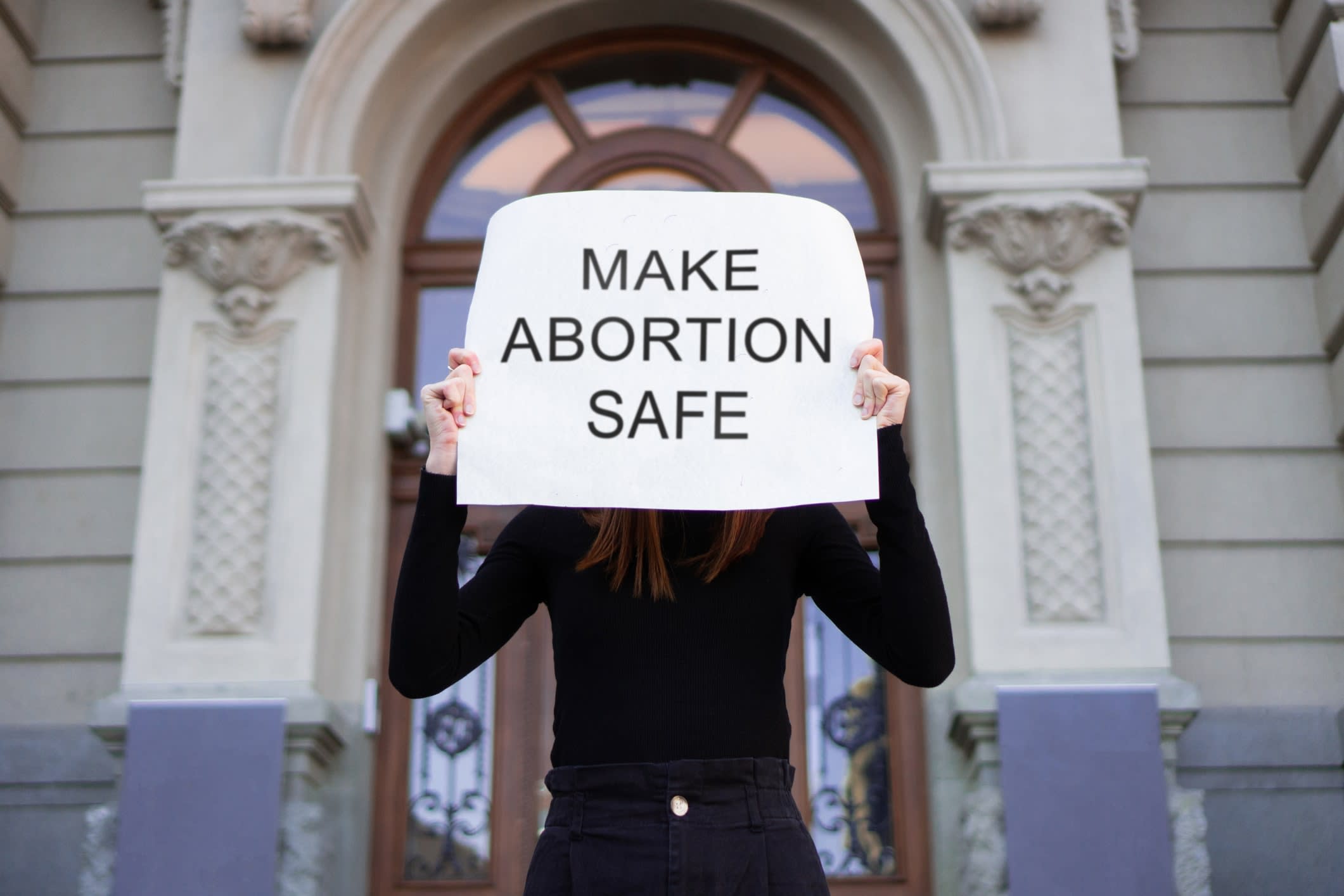By the end of March next year, an Australian government Senate inquiry into reproductive healthcare - primarily regarding inequalities in abortion and contraception access - will have heard and then reported its findings.
-
Danielle Mazza
Professor, General Practice, Monash University
It's a historic, broad inquiry, and the first of its kind by an Australian government.
It was initiated by the Greens earlier this year to look into a set of priorities set out by the National Women's Health Strategy for "universal access to sexual and reproductive health information, treatment and services that offer options to women to empower choice, and control in decision-making about their bodies".
The results may bring Australia into line with countries such as Ireland, Scotland and England, which have strong legal frameworks regarding abortion access, contraception access, and expansion of the health workforce into these areas.
Monash University's SPHERE - the National Health and Medical Research Council-funded Centre of Research Excellence in Women's Sexual and Reproductive Health in Primary Care - will make a submission, and encourage other organisations or individuals in the field to do the same, including clinicians, consumers, family planning organisations, sexual and reproductive health organisations, women's groups, or primary care groups.
The submission is based on SPHERE's Coalition Consensus Statements.
Submissions are open until 15 December.
The Greens' Senator Larissa Waters, who raised the motion for the inquiry to the Senate, and saw it voted through, has said that in a post-Roe v Wade landscape for women, the federal government in Australia needs to have a "more cohesive approach to approaching reproductive health, including a focus on contraception, sexual health care and education, and unbiased counselling - necessities that are often inaccessible and unaffordable to vulnerable and minority communities".
She said access to safe and legal abortion was a "postcode lottery" in Australia - "with different rules, costs, and availability, depending on where you live".
"Some people have to travel for hours at significant expense to access what is a basic healthcare service … the inquiry will look at ways to empower young people to have more choice and control in decision-making about their bodies, whether that's through contraceptives, sexual healthcare, or abortion."
SPHERE's submission will be on behalf of its Sexual and Reproductive Health Coalition, set up two years ago. The four key messages are free contraception for women under 25, better rural and regional access to contraception and abortion through regional-level planning and accountability; allowing more nurses and midwives to work in contraception and abortion; and setting and reporting on targets aligned with the National Women's Health Strategy.
SPHERE's Director, Professor Danielle Mazza, an Australian thought-leader in the field, explains the context of the submission to Lens.
This seems like a historic opportunity?
I think what it does is enable the voices of a very broad range of community members to be heard. It would be good to see women and women's organisations putting forward a submission so the consumer experience can really be visible.
Why will you emphasise creating standards and targets in your submission?
Proposing standards of service with key performance indicators means you've got a target, and if you've got a target that you've got to meet, then you're accountable.
At the moment, there's no accountability and no framework of standards, whereas we've seen countries like Scotland and Ireland have very clear standards that are reported on by each regional health service on an annual basis, and they can track it, with transparent reporting around it.
At the moment, it's very difficult in Australia to even know what's going on, because the federal government has responsibility for healthcare of the nation, but hospitals are funded by state governments, so having national standards that can be implemented in hospital settings and reported on by state governments, and standards and targets for community settings reported by primary health networks is a really important driver.

What's the thinking behind free contraception for women under 25?
Our coalition is going to channel world's-best-practice into our submission recommendations. In countries like France and Sweden, and now even Ireland, there's free contraception. It makes sense to lower barriers to access, and it's cost-saving from an economics point of view as well.
The problem when it comes to contraception is that a lot of the newer contraceptive products aren't available under the pharmaceutical benefit scheme, because the pharma companies haven't made an application to the pharmaceutical benefit scheme. And that's because our Australian market is quite small, and it probably costs them a lot to go through the regulatory process. Or they may have applied for it and been knocked back - we don't know.
So there's this whole swag of contraceptive products that are only available on private prescription, and that means that consumers are bearing the full cost.
If you're thinking about teenage pregnancy and trying to avoid that, then where do 15, 16-year-old girls get access to money to pay for contraception like that?
The submission talks about "abortion deserts" in Australia. What do you mean?
Our research has mapped medical abortion access, and we see these huge deserts across Australia where there isn't even one GP currently prescribing or one pharmacist dispensing medical abortion medication.
Internationally, they've done all these different things to try and overcome that problem. In Canada, there's been a removal of all the regulatory barriers that were set up.
We need to be supporting much easier access, open access, and removal of any of these regulatory barriers that just inhibit practitioners from taking on this work, and from women from accessing this service.
"Proposing standards of service with key performance indicators means you've got a target, and if you've got a target that you've got to meet, then you're accountable."
Rural and regional women have particular issues. I was talking to a GP who's been doing some locum work in Warrnambool [in Victoria], and he said that appointments for general practitioners aren't available for four weeks, which is a real issue, because medical abortion is very time-sensitive. It has to occur before the ninth week of the pregnancy, because medical abortion medication is only registered in Australia for use up to nine weeks.
Internationally, medical abortion medication is commonly used up to 12 weeks, and can be used in later gestations in the hospital setting.
Which ties into your points about the regulatory framework and training?
Yes, the current regulatory requirements are complex - you need to have undertaken special training, online training. You need to be registered. You need to re-register every three years. Pharmacists also have to register to dispense.
So even if you're a prescriber, the woman might not be able to get the medical abortion medication, because there may not be any pharmacist in her local region who's dispensing this medication.
The argument is, why go through all of this? Why isn't medical abortion like any other normal prescription, where GPs will undertake training where they need to? They can issue the prescription. It's dispensed like any other medication in a pharmacy. There's not all this palaver, not all this stigma, there's not all of these hurdles that you've got to jump over.
That woman in Warrnambool, there might be 10 GPs there, and maybe only one or two of them are prescribers. How does she know which one is a prescriber? If that's not her normal GP, how does she know whether she's going to come across a conscientious objector?
In Victoria, at least, if you're a conscientious objector, you need to declare that to the woman and refer her on to appropriate services, but that might not always happen. So, there are all these hurdles women have to jump through.

Is the scale of the problem in rural and regional areas due to structural issues or cultural issues?
I think it's a combination of both. One of our recommendations is about having regional-level accountability for services. That's really, really, really important, because what's happening at the moment is a lot of, for example, public hospitals, are just not offering the service.
So where is the accountability that at a regional level, women can access this essential service? Abortion has been designated an essential service by the College of Obstetrics and Gynaecology, but public hospital boards are just saying, "No, we're not going to do that."
Or individual practitioners in those hospitals are saying, "No, we don't do that. They can go elsewhere." But there's nowhere else for them to go. So, we need to have some kind of regional accountability that ensures there's a minimum of service delivery in each local region.
We've heard stories in our coalition of, for example, women in the flood-affected areas of Lismore in New South Wales where there's no surgical providers in that whole area. So, to access services, they either have to get to Brisbane and pay privately, or they have to go down to Newcastle, which is a six-hour drive away, and has a very limited service provision as well.
The federal government has a mechanism for regional accountability - the primary health networks. We've talked about this in our recommendations that, similar to the primary health networks commissioning drug and alcohol services or mental health services where they don't exist at a regional level, we believe they can also commission abortion services if the government instructed them to do that.
You talk about "reproductive coercion". What is that?
Reproductive coercion is being increasingly recognised as a significant part of family violence. It's things like forcing women to have abortions when they don't want to, or forcing women to carry through pregnancies when they don't want to.
It can work either way. And it's an area that's only just starting to be recognised. We're trying to understand the health effects and the social effects of it. We think there needs to be more research into this area to help us to develop potential screening tools and interventions to try and assist women who are in this situation, together with a legislative response to it as well.
How are you feeling about all this, ahead of a historic Senate inquiry?
I applaud the fact that there's been bipartisan support for this inquiry. And hopefully that bodes well for the inquiry being able to make recommendations that can then be adopted into policy.






